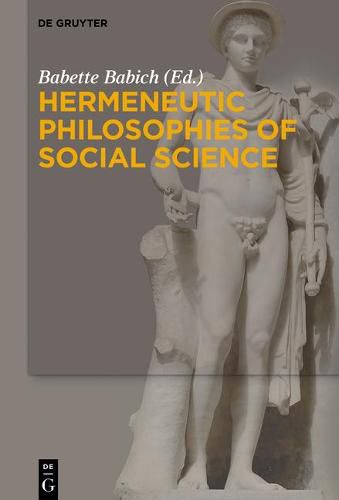Readings Newsletter
Become a Readings Member to make your shopping experience even easier.
Sign in or sign up for free!
You’re not far away from qualifying for FREE standard shipping within Australia
You’ve qualified for FREE standard shipping within Australia
The cart is loading…






Hermeneutic philosophies of social science offer an approach to the philosophy of social science foregrounding the human subject and including attention to history as well as a methodological reflection on the notion of reflection, including the intrusions of distortions and prejudice. Hermeneutic philosophies of social science offer an explicit orientation to and concern with the subject of the human and social sciences.
Hermeneutic philosophies of the social science represented in the present collection of essays draw inspiration from Gadamer’s work as well as from Paul Ricoeur in addition to Michel de Certeau and Michel Foucault among others. Special attention is given to Wilhelm Dilthey in addition to the broader phenomenological traditions of Edmund Husserl and Martin Heidegger as well as the history of philosophy in Plato and Descartes.
The volume is indispensible reading for students and scholars interested in epistemology, philosophy of science, social social studies of knowledge as well as social studies of technology.
$9.00 standard shipping within Australia
FREE standard shipping within Australia for orders over $100.00
Express & International shipping calculated at checkout
Stock availability can be subject to change without notice. We recommend calling the shop or contacting our online team to check availability of low stock items. Please see our Shopping Online page for more details.
Hermeneutic philosophies of social science offer an approach to the philosophy of social science foregrounding the human subject and including attention to history as well as a methodological reflection on the notion of reflection, including the intrusions of distortions and prejudice. Hermeneutic philosophies of social science offer an explicit orientation to and concern with the subject of the human and social sciences.
Hermeneutic philosophies of the social science represented in the present collection of essays draw inspiration from Gadamer’s work as well as from Paul Ricoeur in addition to Michel de Certeau and Michel Foucault among others. Special attention is given to Wilhelm Dilthey in addition to the broader phenomenological traditions of Edmund Husserl and Martin Heidegger as well as the history of philosophy in Plato and Descartes.
The volume is indispensible reading for students and scholars interested in epistemology, philosophy of science, social social studies of knowledge as well as social studies of technology.